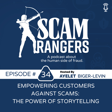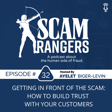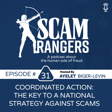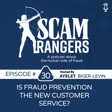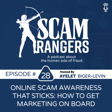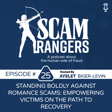
Combatting Scams With Technology and Collaboration: A conversation with Nicola Staub, CEO and Co Founder, Cybera
In this episode of Scam Rangers, Nicola shares his journey in fighting scams and talks about how victims are not getting enough help or understanding from law enforcement. He also talked about his vision for Cybera, a company that provides a platform to help victims of financial crimes. The discussion emphasized the importance of collaboration and technology in preventing scams and the need for public-private sector collaborations to build tools that can protect people from financial crimes.
This podcast is hosted by Ayelet Biger-Levin https://www.linkedin.com/in/ayelet-biger-levin/ who spent the last 15 years building technology to help financial institutions authenticate their customers and identify fraud. She believes that when it comes to scams, the story starts well before the transaction. She has created this podcast to talk about the human side of scams, and to learn from people who have decided to dedicate their lives to speaking up on behalf of scam victims and who take action to solve this problem. Be sure to follow her on LinkedIn and reach out to learn about her additional activities in this space.
Also check out https://scamranger.ai if you had received a message that you suspect is a scam





